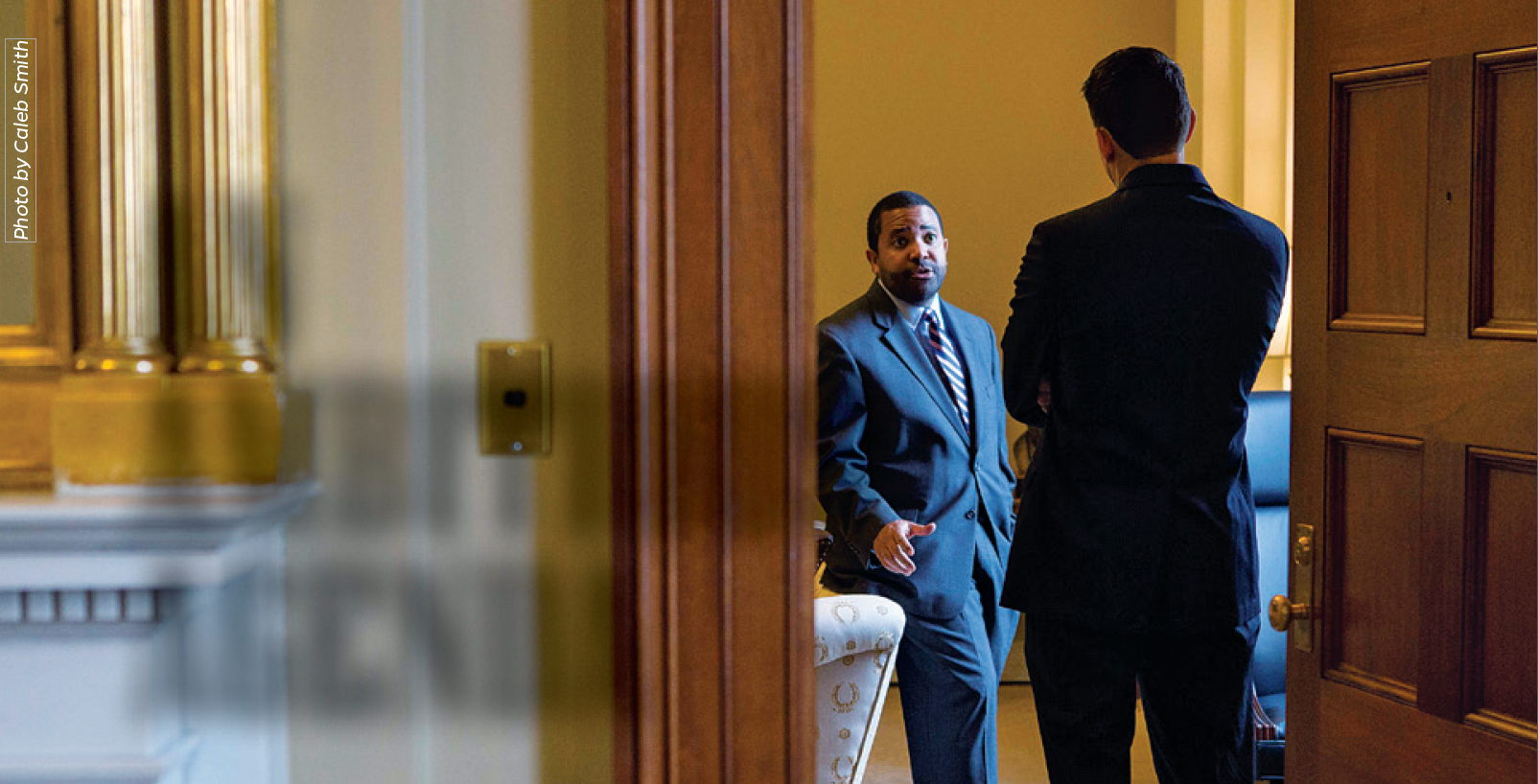An Ambitious Agenda

With the Republican Party controlling all three branches of the government for the first time since 2007, Capitol Hill has become a maelstrom of GOP activity. The party’s ambitious domestic agenda includes repeal and replacement of the Affordable Care Act, tax code reform, and reshaped immigration laws.
Beyond the elected officials themselves, perhaps no one is closer to the center of this storm than Jonathan Burks SAIS ’10, chief of staff for House Speaker Paul D. Ryan, R-Wis. Burks runs Ryan’s staff, moves Ryan’s policy agenda forward, and manages outreach to the media, the public, and interest groups.
Burks attended SAIS from 2008 to 2010, majoring in security studies under Eliot Cohen, with whom he had worked in the White House during the presidency of George W. Bush.
“One of the great things about SAIS for me was that having been engaged in government before going to SAIS and being self-taught to some degree on a lot of issues, it was actually nice to be able to sit down and read, from front to back, a book or two—and really get engaged in some of the more scholarly debates on economic issues,” Burks said.
“That really helped me get some perspective on the questions that we face and to get a further grounding in the work that folks have done and have really thought through on the issues.”
As for Ryan’s work, “everyone is pretty energized on my side of the aisle, for the opportunity that unified Republican government presents,” Burks said.
“The speaker spent all of 2016 putting together a policy agenda that basically said to voters, if you elect us, these are the things that we want to get done,” Burks explained. “So now we have a responsibility to deliver on that promise.”
With the nation’s attention on Ryan’s plans to revamp health care and the tax code, Burks said the speaker’s office is swamped. More than 10,000 phone calls, emails, cards, and letters arrive daily. That’s in addition to 435 members of Congress who want a piece of the speaker’s time and the steady flow of international delegations. The Bahraini foreign minister, for example, stopped by the office in March.
“I often don’t get home until 11:30 at night,” said Burks, 38.
In the long run, however, he said it’s worth it. “Doing big things is always hard. It is always a challenge to move from being an opposition party to being a governing one, and that is something that we are working through,” Burks said. “And members have to get used to making the compromises necessary to make law.”
This story originally appeared in SAIS Magazine Summer 2017.
